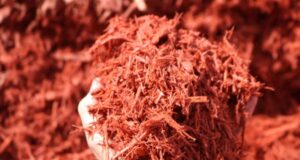$17+ Million in Grants Will Help States, Local Communities Keep Waters Clean, Economies Thriving
Funds support facilities for boaters, benefitting communities and wildlife

WASHINGTON — (RealEstateRama) — Water-loving outdoor recreationists and local communities in 27 states will have additional resources to help boaters keep America’s waters clean, thanks to more than $17 million in Clean Vessel Act program grants from the U.S. Fish and Wildlife Service.
Millions of Americans enjoy recreational boating as part of a multi-billion-dollar industry that drives many local economies. However, boaters can have an impact on the health of our waterways, particularly water quality.
“The boating community plays a role in keeping our waterways clean, which benefits anglers, other recreationists and wildlife,” said U.S. Secretary of the Interior David Bernhardt. “The Clean Vessel Act program facilitates responsible boater behavior, makes substantial contributions to local communities and their economies, and is a great example of the Department’s commitment to work with state and local partners to improve infrastructure and support conservation efforts.”
The Clean Vessel Act grants provide much-needed funding to communities to build and maintain facilities that help boaters keep our rivers and streams clean. Pump-out systems built or purchased with these funds ensure recreational boaters have a safe, convenient and effective method to dispose of on-board sewage. The funds also support associated boater education programs.
Clean waterways benefit the health of fish and other aquatic life, which in turn benefits boaters themselves, as well as anglers and other waterway users. Local communities can continue to thrive from the fishing and boating economy.
Boaters and manufacturers contribute to the Sport Fish Restoration and Boating Trust Fund through excise taxes and duties on certain fishing and boating equipment and boating fuels. Since the program’s inception in 1993, the Service has allocated more than $277 million from that fund in CVA grants to U.S. states and territories.
“Anyone who enjoys time on the water benefits from the Clean Vessel Act program and the contributions it makes toward conservation and communities,” said Principal Deputy Director of the U.S. Fish and Wildlife Service Margaret Everson. “This program demonstrates the very positive ripple effect of recreation spending on the communities where Americans enjoy the outdoors.”
“This is a great program that recreational boaters and anglers need and fund from within their own ranks – it’s their purchases of motorboat fuel, excise taxes paid on fishing equipment and import duties that keep the CVA grants program a success,” said BoatUS Vice President of Government Affairs Chris Edmonston. “Taxpayers are not burdened with these costs.”
Examples of 2019 CVA projects include:
California –With coastal and inland grants totaling more than $2.3 million, the California Department Parks and Recreation Division of Boating and Waterways will reduce vessel sewage pollution from overboard discharges into state waters through the installation of 10 new pump-outs and five new dump stations and will provide maintenance support for CVA-funded equipment in coastal waters. They will also install nine new or replacement ADA-compliant floating restrooms, two new pump-out stations and two new dump stations and maintain 20 floating restrooms, dump stations and pump-out stations in inland waters.
Florida –The Florida Department of Environmental Protection will use coastal and inland grants totaling more than $2.2 million to increase by 26 the number of coastal marina pump-out facilities, renovations, operations, maintenance and repair projects in the coastal area and 15 in the inland area. They will continue their ongoing CVA boater education program that includes internet postings, outreach events, brochures, and radio and television public service announcements.
Maryland – With a coastal grant of nearly $1 million, the Maryland Department of Natural Resources plans to work with marina owners to replace or renovate 25 existing pump-outs, install five new pump-outs and purchase one new pump-out boat. They will assist with operations and maintenance on 100 fixed pump-outs and three pump-out boats and continue their outreach and education efforts.
The CVA program’s support through the user-pay-public-benefit cycle has contributed to the success of the Sport Fish Restoration program. States can apply for CVA funding, and they or their partners provide matching funds to complete projects. Sub-grantees often include local municipalities and private marinas. These partnership efforts are a win-win for clean water and the many families who enjoy recreational boating and the great outdoors.
More information regarding the 2019 CVA grant awards can be found here. More information about the CVA program can be found here.
###
Contact:
Laury Parramore
703-358-2541













